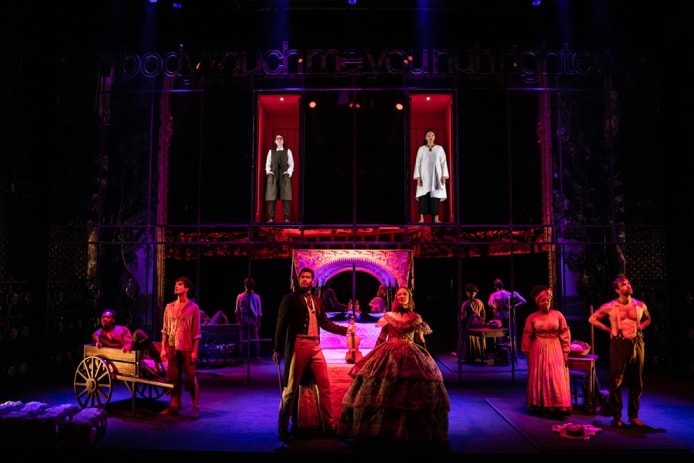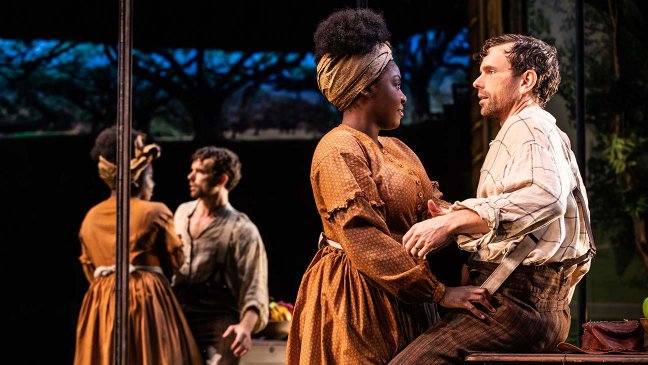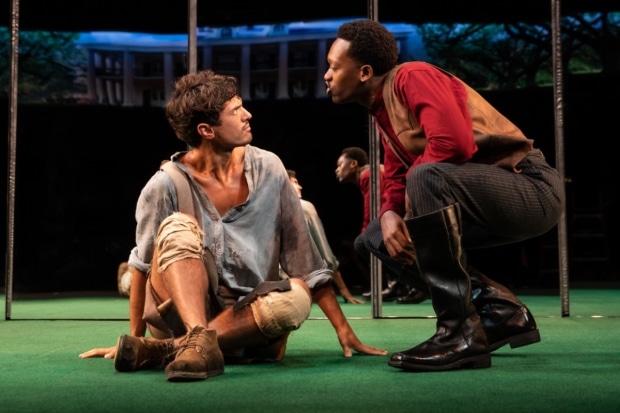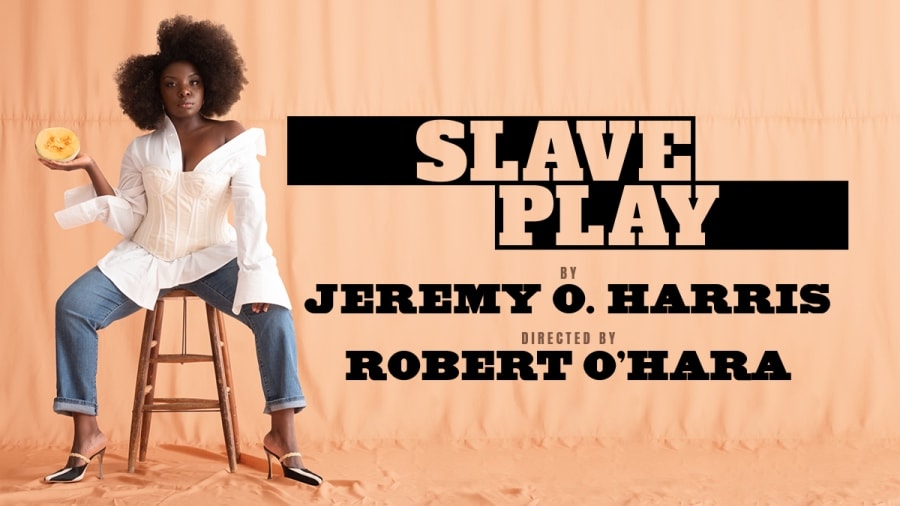Sitting in a theater for a two-hour-and-five-minute running time without intermission is not particularly comfortable for many audience members who might require a bathroom break or a chance to stretch their legs. But then again, there’s nothing about Jeremy O. Harris’s controversial Slave Play that is intended to make the audience feel comfortable. To the contrary; the three-act shocker is designed to provoke, not to palliate, and at that it succeeds.

Directed with no-holds-barred vehemence by Robert O’Hara, the in-your-face narrative is framed in a surprising antebellum conceit that examines our country’s appalling history on issues of race, gender, and sexuality and its unabated impact on the socio-political climate and interpersonal relationships of present-day America. It all unfolds within a biting parody of interracial couples’ therapy, loaded with intellectual psychobabble and a pointed swipe at Yale (the playwright’s own Ivy League alma mater) to explore questions of victimization, cellular memory, fever dreams, collective guilt, and the inability to understand or to empathize fully with the experience of the other.
The characters are at first laughably presented as over-the-top, histrionic, one-dimensional racial, ethnic, and sexual stereotypes that are as offensive as they are funny. But the initially farcical style of their role play (including overly long segments of simulated fetishist sex that seem better suited to a BDS&M club than a Broadway stage) becomes increasingly aggressive and combative, as layers of long-held defense mechanisms are peeled away to reveal the suppressed torment, self-loathing, racism, and misogyny that lie within. The end result is catharsis on the scale of a Greek tragedy, culminating in episodes of raw explosive rage and insurmountable divisiveness (and an outrageous conclusion that, from a feminist perspective, could decimate the #MeToo and #TimesUp movements and lend support to the all-too-familiar defenses that “it was consensual,” “she wanted it,” “she asked for it,” “she even thanked me for it”).

A committed cast of eight fully embraces the acerbic humor, with intentional bad acting, old-time southern accents, antiquated vernacular, and abusive epithets in the opening scenes of improvisational “antebellum sexual performance therapy” between the clichéd partners Gary (Ato Blankson-Wood) and Dustin (James Cusati-Moyer), Phillip (Sullivan Jones) and Alana (Annie McNamara), and Kaneisha (Joaquina Kalukango) and Jim (Paul Alexander Nolan), and in the early group session “processing” led by researchers Teá (Chalia La Tour) and Patricia (Irene Sofia Lucio) with risible, and generally misguided, tenacity. All then slowly but surely deliver the innermost concerns, emotions, and psychology of their characters, as the tone of the play begins to shift from overtly satirical to dead serious, the pent-up hostilities rise to the surface and flow freely between the couples and among the group, and sex becomes inextricably bound to dominance and control, power and submission, not love.

The show’s masterful artistic design supports the theme with costumes by Dede Ayite, hair and wigs by Cookie Jordan, and original music and sound by Lindsay Jones from both then and now. Jiyoun Chang’s lighting accentuates the dramatic transitions in mood, and an ingenious set by Clint Ramos augments the playwright’s message with a backdrop of mirrored panels that reflects encompassing projected images of the MacGregor Plantation in The Old South, the characters on stage, and the entire audience, thereby making us complicit in the action and attitudes.
There is something (well, actually, there are lots and lots and lots of things) to offend everyone in Slave Play, so if you’re in the market for a pleasant evening at the theater, you won’t find it here. What you will encounter is an inescapable confrontation with the legacy of our culture that will leave you shaking, debating, and thinking, though not necessarily healing. So where does that leave us? A nation ever divided by race, gender, and sexuality, in Harris’s devastatingly sardonic, contentious, and pessimistic view.
Running Time: Approximately two hours, without intermission.





